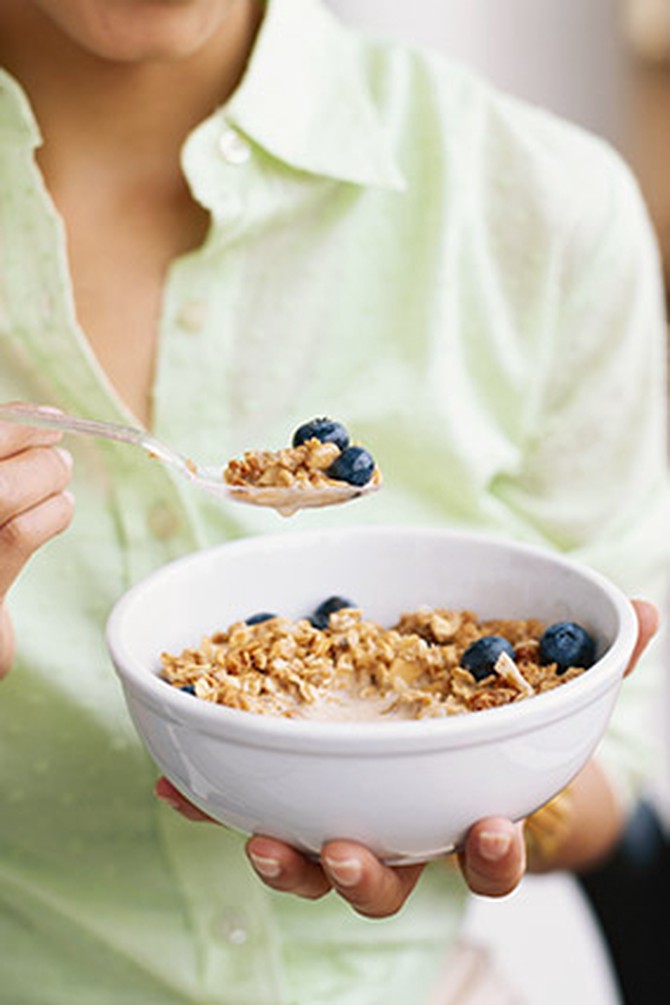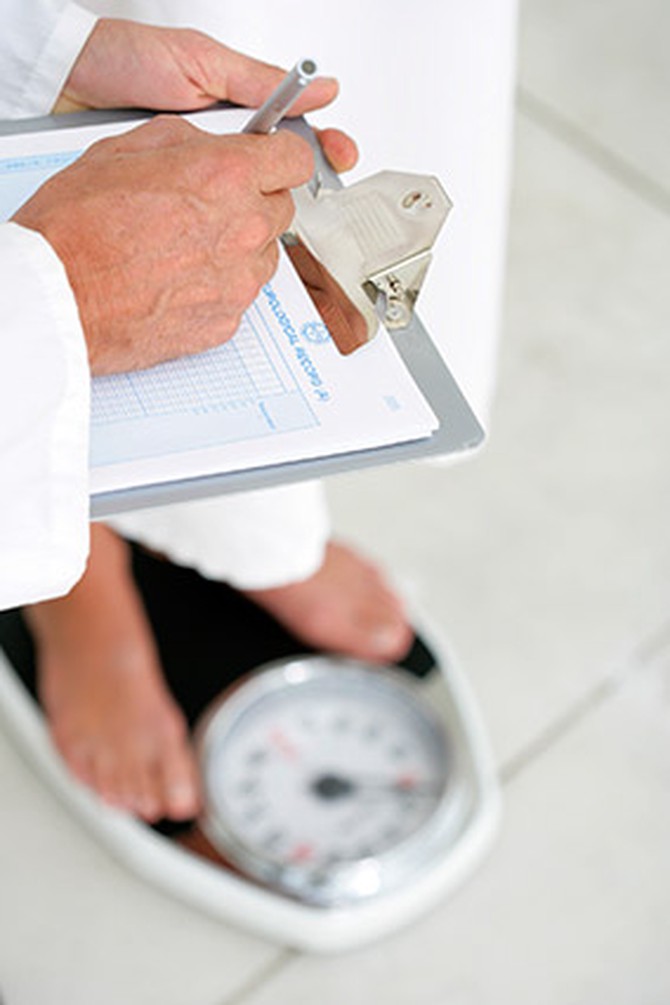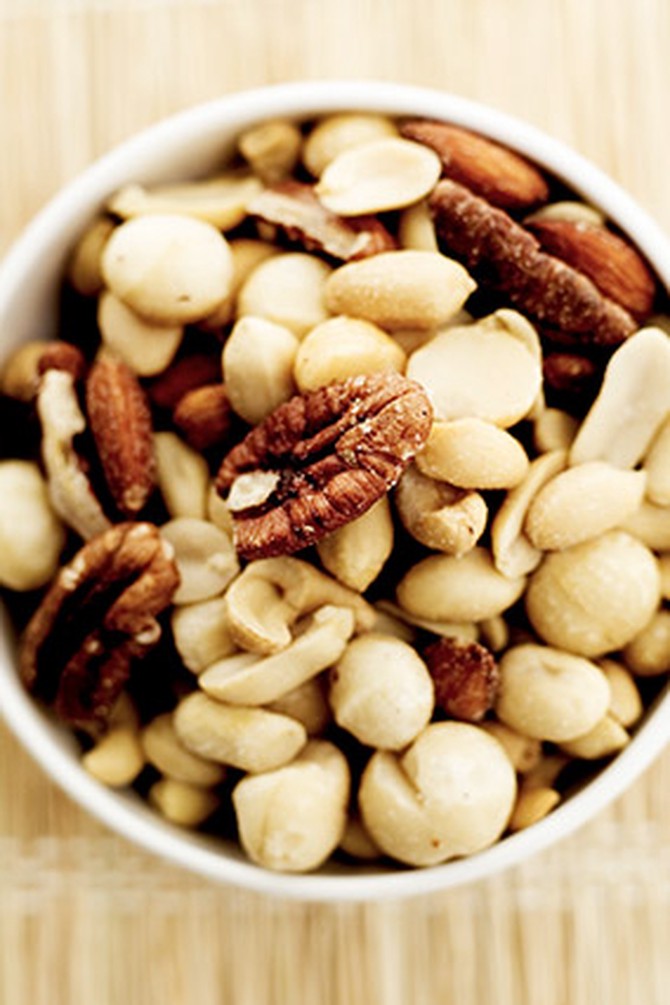Truth or Myth?: 5 Diet Tips Demystified
Dr. Oz tackles 5 common—and potentially misleading—pieces of advice to help you rule out bogus weight-loss methods.
By Dr. Mehmet Oz

Photo: Thinkstock
"Wait Until You're Hungry to Eat."
Myth!: By waiting to eat until you're very hungry, your hunger simply builds and builds until it's all consuming, causing your appetite to get out of control. In fact, new research reveals that by skipping breakfast, you'll end up eating more calories in total and making less healthy food choices throughout the day than you would have otherwise. Research also shows that forgoing breakfast activates your body's insulin response, triggering fat storage and weight gain.
Bottom line: Never skip breakfast. In general, don't wait until you're ravenous to eat, which can tempt you to reach for junk foods loaded with refined carbs, sugar and trans fats. Be sure to eat every few hours throughout the day, including breakfast, lunch and dinner, and incorporate a few healthy snacks in between to keep your appetite in check. Lastly, consider monitoring your hunger by measuring your appetite on a scale of 1 (starving) to 10 (full). If you wait to eat until your hunger is at level 1, you're more likely to binge.
Bottom line: Never skip breakfast. In general, don't wait until you're ravenous to eat, which can tempt you to reach for junk foods loaded with refined carbs, sugar and trans fats. Be sure to eat every few hours throughout the day, including breakfast, lunch and dinner, and incorporate a few healthy snacks in between to keep your appetite in check. Lastly, consider monitoring your hunger by measuring your appetite on a scale of 1 (starving) to 10 (full). If you wait to eat until your hunger is at level 1, you're more likely to binge.

Photo: Thinkstock
"Your Metabolism Makes You Fat."
Truth!: Your thyroid, the butterfly-shaped gland located in your neck right below the Adam's apple, pumps out hormones that control metabolism throughout the body. But sometimes a medical condition called hypothyroidism occurs, which can slow down production of these hormones. As a result, the digestive process in your gut slows down, causing bloating and weight gain. However, hypothyroidism impacts only about 5 percent of the population. Consuming too many calories, not exercising enough, genetics, family history and unhealthy habits, such as skipping breakfast and not getting enough sleep, are the reasons behind most weight gain. In addition to unexplained weight gain, other symptoms of hypothyroidism include dry skin, daily fatigue and coarse or brittle hair. If you suspect you may have hypothyroidism, ask your doctor to check by performing a simple blood test.

Photo: Thinkstock
"Eating Fat Makes You Fat."
Myth!: Fat, along with proteins and carbohydrates, is an essential nutrient, vital to your overall good health. You need fat in your diet. The key is to eat healthy fats and consume them in moderation to maintain a healthy weight since fats provide more calories per gram than proteins or carbohydrates. Make a habit of getting 30 percent of your daily calories from heart-healthy unsaturated fats such as olive oil, nuts, avocados, fish, flaxseed, etc. Avoid unhealthy trans fats found in processed foods such as cookies, chips and margarine; limit your intake of saturated fats found in whole milk, butter and red meat.

Photo: Thinkstock
"Drinking Water and Coffee Can Make You Lose Weight."
Myth!: Neither water nor coffee can "flush fat" from the body and make you lose weight. Water is essential for life and contains zero calories. Therefore if you replace drinks that have calories with water you'll end up consuming fewer calories, which can help dieting. It's this healthy habit that can help you lose weight—not the water itself. In terms of coffee and weight loss, coffee acts as a stimulant, which means that initially it gives you a jolt of energy, slightly boosting metabolism. But bear in mind that if you add sugar or cream to your coffee, the metabolism boost will get cancelled out by excess calories. Lastly, always use caution when consuming caffeine to aid weight loss. Caffeine should always be enjoyed in moderation since too much can cause anxiety, nervousness and insomnia. Drink no more than 3 to 4 cups of caffeinated coffee or tea per day.

Photo: Thinkstock
"Gaining Weight Is Inevitable as You Age."
It's a Draw: With age, your body's production of hormones that help maintain muscle mass begins to decrease. Additionally, most of us become less active as we get older, which also causes loss of muscle mass. Combined, the distribution of your weight changes. As you lose muscle weight, more of your weight can be attributed to fat. To counteract age-related weight gain, you need to practice strength training. Do 10 minutes of exercises such as lunges, leg lifts and pull-ups several days a week. By building your muscle back up, you'll burn more fat. Another harsh reality tied to aging: Your metabolism simply slows down by about 5 percent for every decade past age 40. To counteract this, force your metabolism to work harder by cutting calories. As a rule of thumb, beginning at age 40, cut approximately 50 to 100 calories out of your daily diet.
Next: Dr. Oz's 10 simple rules to lose 5 pounds
Next: Dr. Oz's 10 simple rules to lose 5 pounds
Published 02/22/2013
As a reminder, always consult your doctor for medical advice and treatment before starting any program.

